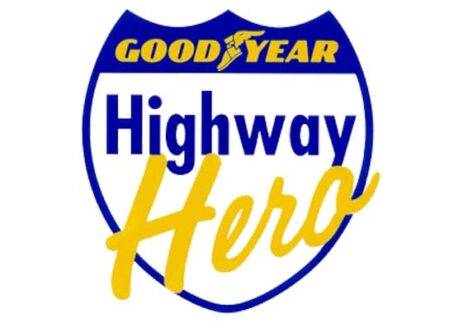OOIDA appeals dismissal of Pennsylvania toll lawsuit
The Owner-Operator Independent Drivers Association says it will appeal the dismissal of its lawsuit against the state of Pennsylvania over the state’s tolling authority on the Pennsylvania Turnpike.
On Thursday, April 4, U.S. District Court Judge Yvette Kane granted the state’s and Pennsylvania Turnpike Commission’s motion to dismiss while simultaneously denying OOIDA’s motion for partial summary judgement. The orders effectively close the case.
OOIDA plans to appeal the decision to the U.S. Court of Appeals.
“This lawsuit is far from over,” said OOIDA President Todd Spencer. “And win or lose on appeal, the turnpike’s debt crisis and the commonwealth’s transportation emergency aren’t going away either.”
In its lawsuit, OOIDA argued that legislation passed to establish tolls on the Pennsylvania Turnpike, Act 44/89, violates both the Commerce Clause in the U.S. Constitution and the constitutional right to travel. However, defendants, which include the governor, Pennsylvania Turnpike Commission and the state secretary of transportation, counter those arguments by stating they fail to state a claim. The district court agreed with the defendants.
Backing their claim, the state argued that Congress has specifically authorized states to use toll revenues for any purpose for which federal transport funds may be used. They cited a recent U.S. Court of Appeals 2018 opinion in the case American Trucking Associations v. New York State Thruway Authority. According to that ruling, the Intermodal Surface Transportation Efficiency Act of 1991 excluded a dormant Commerce Clause challenge to use toll revenues for transportation purposes unrelated to the tolling facilities that generated those revenues on the ground that Congress expressly authorized that use in ISTEA.
Even without that authorization, the state says Act 44/89 does not impose a burden on interstate commerce to the degree it violated the Commerce Clause. A Supreme Court case found that a levy is reasonable if it:
- Is based on some fair approximation of use of the facilities.
- Is not excessive in relation to the benefits conferred.
- Does not discriminate against interstate commerce.
Addressing the first two points, attorneys for the state argued that the turnpike is part of a larger transportation system, and that those who pay tolls to use the turnpike benefit from not only access to the turnpike itself but from the maintenance, operation, and improvement of the entire transportation system, of which the turnpike is only one part.
OOIDA argued it has in fact stated a claim regarding violation of the Commerce Clause. Referring to ISTEA, plaintiffs state that Congress did not give such authorization to establish tolls “free of limitations imposed by the dormant Commerce Clause.”
Also using a separate three-prong test of reasonableness of levies, OOIDA argued that toll receipts, which have exceeded 200 percent of the cost to maintain and operate the turnpike, are not based on some fair approximation of the use of the turnpike, and are excessive in relation to the benefits conferred.
In the opinion, the court found credible OOIDA’s allegation that Pennsylvania’s policy decisions related to transportation have resulted in a statutory scheme that disproportionately burdens turnpike travelers with the costs of a statewide transportation system that is of no direct benefit to them.
Essentially, it came down to which test the court found to be the most relevant to the case. Judge Kane decided that the test most favorable to the defendants was appropriate.
“It appears to us that she chose to apply a standard from a Supreme Court case from back in 1970 that focused on burdens imposed under a state’s regulations about agricultural products, rather than a standard from more recent in Supreme Court cases that spoke directly to user fees, which is what the tolls are in Pennsylvania,” Spencer said.
The Association says the case is now poised for review by the Third Circuit Court of Appeals.









